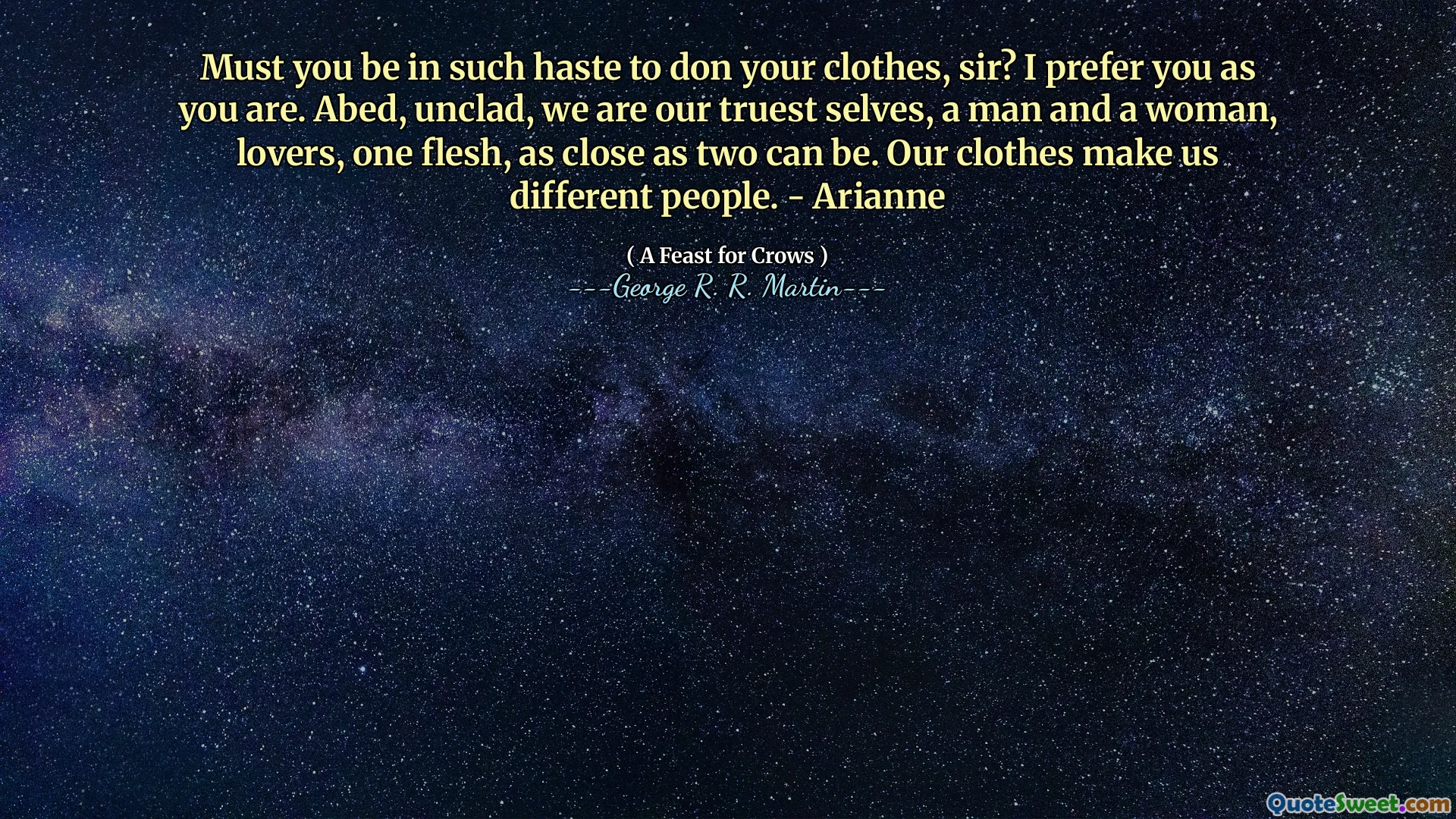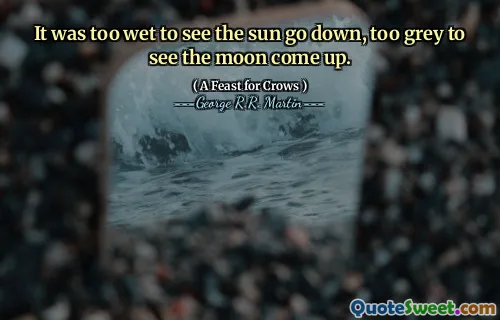
Must you be in such haste to don your clothes, sir? I prefer you as you are. Abed, unclad, we are our truest selves, a man and a woman, lovers, one flesh, as close as two can be. Our clothes make us different people. - Arianne
This quote eloquently explores the theme of authenticity and the societal constructs that influence human identity. The speaker, Arianne, advocates for the acceptance of one's natural state, emphasizing that removing external coverings—clothing—reveals a person's true self. In a broader context, clothing often acts as a social marker, signifying status, profession, or cultural identity, but it can simultaneously serve as a barrier to genuine intimacy and understanding. Arianne's perspective challenges the notion that external appearances define our worth or identity, urging us to look beyond superficial differences and recognize the inherent unity shared by all humans. The contrast between being 'clad' and 'unclad' symbolizes the distinction between societal masks and genuine self-awareness. This perspective fosters a reflection on vulnerability—by showing ourselves as we truly are, we risk exposure but also the possibility of deeper connection. Understanding and embracing our natural state might also suggest a return to authenticity in personal relationships, emphasizing emotional closeness over superficial appearances. Moreover, it raises questions about societal expectations—how often do we conform to external appearances to meet perceived standards, and what do we sacrifice in the process? In embracing our native selves, we reclaim a fundamental aspect of human connection: honesty. The quote resonates with the idea that true intimacy and understanding strip away the layers of societal influence, leaving only genuine human essence. This message remains profoundly relevant in contemporary discussions about self-acceptance, authenticity, and the importance of vulnerability in building meaningful relationships.









